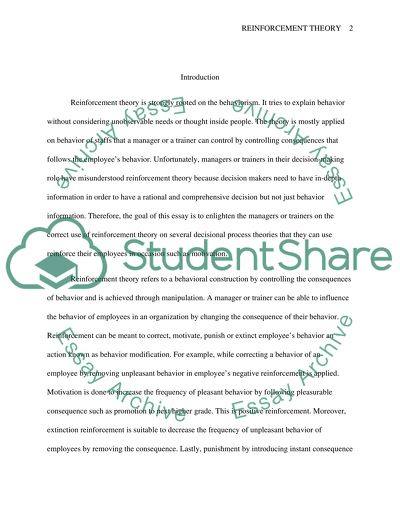Cite this document
(“Reinforcement Theory-Reinforcement Theory is one of the most Essay”, n.d.)
Reinforcement Theory-Reinforcement Theory is one of the most Essay. Retrieved from https://studentshare.org/human-resources/1635672-reinforcement-theory-reinforcement-theory-is-one-of-the-most-misunderstood-of-the-decisional-process-theories
Reinforcement Theory-Reinforcement Theory is one of the most Essay. Retrieved from https://studentshare.org/human-resources/1635672-reinforcement-theory-reinforcement-theory-is-one-of-the-most-misunderstood-of-the-decisional-process-theories
(Reinforcement Theory-Reinforcement Theory Is One of the Most Essay)
Reinforcement Theory-Reinforcement Theory Is One of the Most Essay. https://studentshare.org/human-resources/1635672-reinforcement-theory-reinforcement-theory-is-one-of-the-most-misunderstood-of-the-decisional-process-theories.
Reinforcement Theory-Reinforcement Theory Is One of the Most Essay. https://studentshare.org/human-resources/1635672-reinforcement-theory-reinforcement-theory-is-one-of-the-most-misunderstood-of-the-decisional-process-theories.
“Reinforcement Theory-Reinforcement Theory Is One of the Most Essay”, n.d. https://studentshare.org/human-resources/1635672-reinforcement-theory-reinforcement-theory-is-one-of-the-most-misunderstood-of-the-decisional-process-theories.


